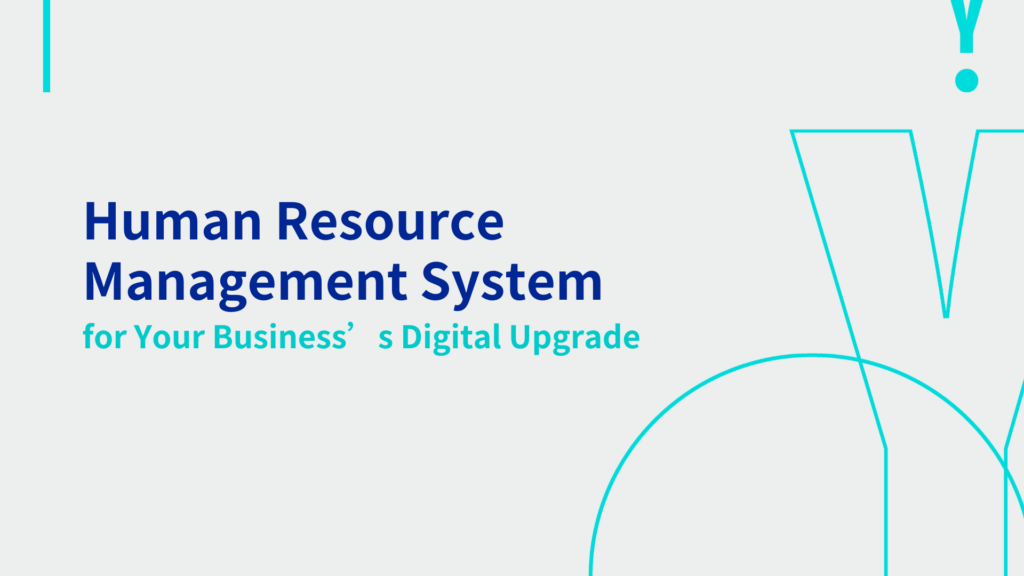
Are you still struggling with outdated HR processes?
Managing HR manually can slow down your entire organization, cause errors, and frustrate your teams. Traditional HR methods drain valuable time, create compliance risks, and limit employee satisfaction across departments. Without digital tools, growing businesses often struggle to handle recruitment, onboarding, payroll, and performance management efficiently.
Moreover, outdated systems make it nearly impossible to deliver a consistent employee experience across different locations and teams. As businesses evolve rapidly, sticking to old HR practices is a risky move that can seriously hurt future growth. Therefore, investing in a modern human resource management system (HRMS) is no longer a luxury; it is now a necessity.
With an HRMS, businesses automate routine tasks, stay compliant, and improve employee engagement effortlessly across multiple operations. In this blog, we will explain why companies and businesses should consider upgrading to a modern HRMS immediately.
- Why Traditional Human Resource Management System Methods No Longer Work?
- Manual Processes Are Slowing You Down
- Higher Risk of Compliance Errors
- Poor Employee Experience
- How HRMS Transforms Your Entire HR Landscape?
- HRMS Vs. Traditional HR: A Quick Feature Comparison
- Signs That Your Business Needs An HRMS Urgently
- Choosing The Right HRMS for Your Business: Key Features to Look For
- Why Digital HR Transformation Is No Longer Optional?
- Conclusion
Why Traditional Human Resource Management System Methods No Longer Work?
Manual Processes Are Slowing You Down
Traditional HR relies heavily on manual entries, spreadsheets, and paper-based processes that can no longer keep up. As a result, valuable HR staff spend hours filing documents, updating records, and fixing minor clerical mistakes.
Moreover, when operations grow, manual systems cannot handle high-volume demands without increasing overhead costs significantly. Thus, time spent on repetitive tasks steals the strategic focus needed to drive organizational growth and employee development forward.
Higher Risk of Compliance Errors
Labor laws change frequently, and manual processes increase the chances of missing critical updates or deadlines. Compliance mistakes often result in costly penalties, damaged reputation, and lower employee trust in company leadership.
Furthermore, audits become a nightmare with scattered, outdated, and incomplete employee records across different departments. Consequently, sticking to traditional HR practices makes compliance more stressful, inefficient, and risk-prone for businesses today. Hence, there’s a need for modern human resources systems.
Poor Employee Experience
Employees today expect faster communication, quick access to information, and transparent HR processes across the board. However, traditional HR models often lack real-time updates, self-service options, or seamless feedback systems employees want.
When information is hard to find, or approvals take forever, employees feel disengaged and undervalued almost immediately. Therefore, poor HR experiences directly impact productivity, loyalty, and long-term retention across all levels of the organization.
How HRMS Transforms Your Entire HR Landscape?
Streamlined Workflows & Automation
One major benefit of an HRMS is how it automates tedious, repetitive tasks across the entire employee lifecycle.
From recruitment and onboarding to payroll and exit processes, HRMS systems create streamlined workflows with minimal manual intervention. As a result, HR professionals spend less time on administrative tasks and more time on strategic planning activities. Moreover, automation reduces errors, improves processing speeds, and ensures important deadlines are always met without fail.
Enhanced Data Accuracy And Security
Modern HRMS solutions centralize employee data on secure, cloud-based platforms with role-based access controls and encryption. Thus, sensitive information stays protected from unauthorized access while being easily retrievable whenever needed by authorized personnel.
Accurate, real-time data enables better decision-making regarding workforce planning, performance management, and organizational development. Meanwhile, regular system backups and security protocols ensure peace of mind for leadership and HR departments alike.
Superior Employee Self-Service Portals
Today’s workforce values independence and quick access to their information without needing to contact HR constantly. Thankfully, human resource management system platforms offer intuitive self-service portals where employees can view payslips, request leaves, and update information themselves.
As a result, HR departments experience fewer interruptions, while employees enjoy transparency, control, and faster responses to their queries. Thus, self-service capabilities lead to higher employee satisfaction and a stronger sense of empowerment within the organization.
HRMS Vs. Traditional HR: A Quick Feature Comparison
| Feature | Traditional HR | HRMS |
| Data Storage | Paper files, spreadsheets | Secure cloud databases |
| Accessibility | Limited, manual | Real-time, multi-device |
| Compliance | High risk | Automated alerts and updates |
| Reporting | Time-consuming | Instant analytics and insights |
| Employee Interaction | In-person, email-heavy | Self-service portals |
| Scalability | Difficult, expensive | Effortless and flexible |
Clearly, the benefits of an HRMS outweigh traditional HR practices in every critical aspect of workforce management today.
Signs That Your Business Needs An HRMS Urgently
- Frequent Human Errors in Payroll
If you constantly find payroll mistakes, it’s a major sign that your manual processes are becoming unsustainable. Small errors can lead to major employee dissatisfaction and even legal troubles over time, so automation is crucial.
- High Employee Turnover
Employees frustrated by slow processes and lack of transparency are likely to leave sooner rather than later. Thus, businesses relying on outdated HR methods often see higher turnover rates compared to digitally advanced competitors.
- Lengthy Recruitment Cycles
Recruitment through emails, paperwork, and spreadsheets takes longer and risks losing top candidates to faster organizations. Therefore, modern human resources systems help you automate, streamline, and speed up the entire recruitment and onboarding process seamlessly.
- Difficulty in Tracking Performance
Without real-time insights and structured appraisal systems, evaluating employee performance becomes inconsistent and subjective. Thus, performance management modules within an HRMS ensure regular feedback, measurable goals, and actionable development plans.
Choosing The Right HRMS for Your Business: Key Features to Look For
- Cloud-Based Accessibility
In today’s fast-paced business environment, accessing HR systems remotely is essential for efficiency and continuity. Thus, opt for a cloud-based HRMS that allows seamless access across devices and ensures data synchronization in real time.
- Customizable Workflows
Every business is unique, so the human resource management system should allow customizable workflows that adapt to your organization’s needs easily. Customizable workflows improve user adoption rates and ensure the HRMS fits your business culture, policies, and processes effortlessly.
- Compliance Management
Choose an HRMS that provides compliance alerts, built-in legal documentation, and region-specific labor law updates automatically. Your business stays audit-ready and compliant without spending additional resources on external compliance consultants.
- Employee Self-Service Features
Ensure your HRMS offers a rich self-service portal so employees can independently manage tasks like attendance, payroll, and updates. Self-service features enhance the employee experience and significantly reduce the workload of your HR team members.
- Data Security Standards
Prioritize HRMS providers that follow international data security standards like ISO, GDPR, or SOC 2 certifications. Thus, sensitive employee data remains protected against breaches, phishing attacks, and unauthorized internal access at all times.
Why Digital HR Transformation Is No Longer Optional?
Digital transformation is no longer something businesses can delay without serious consequences to growth and competitiveness. Moreover, competitors adopting HRMS solutions are already enjoying faster hiring, better retention, improved compliance, and lower operational costs.
In contrast, businesses stuck with traditional HR processes struggle with inefficiency, legal risks, and dwindling employee morale daily. Thus, a digital upgrade isn’t merely an enhancement; it is critical for survival and future-proofing your organization’s HR strategy.
Hence, visit YOOV to integrate the most efficient HR management software for your organization’s growth.
Conclusion
In today’s competitive world, old businesses cannot afford to let traditional HR methods hold them back anymore. By upgrading to a robust human resource management system, you automate mundane tasks, minimize errors, improve compliance, and elevate employee engagement quickly. Therefore, a modern HRMS is your golden ticket to creating a more efficient, scalable, and future-ready HR department.
So, do not wait for compliance penalties, employee turnover, or missed opportunities to force you into modernization reluctantly. Take proactive action now, empower your HR teams, delight your employees, and strengthen your business foundation with an HRMS.
Connect with YOOV

WhatsApp:Click Here
Email:hello@yoov.com
Website:https://www.yoov.com/